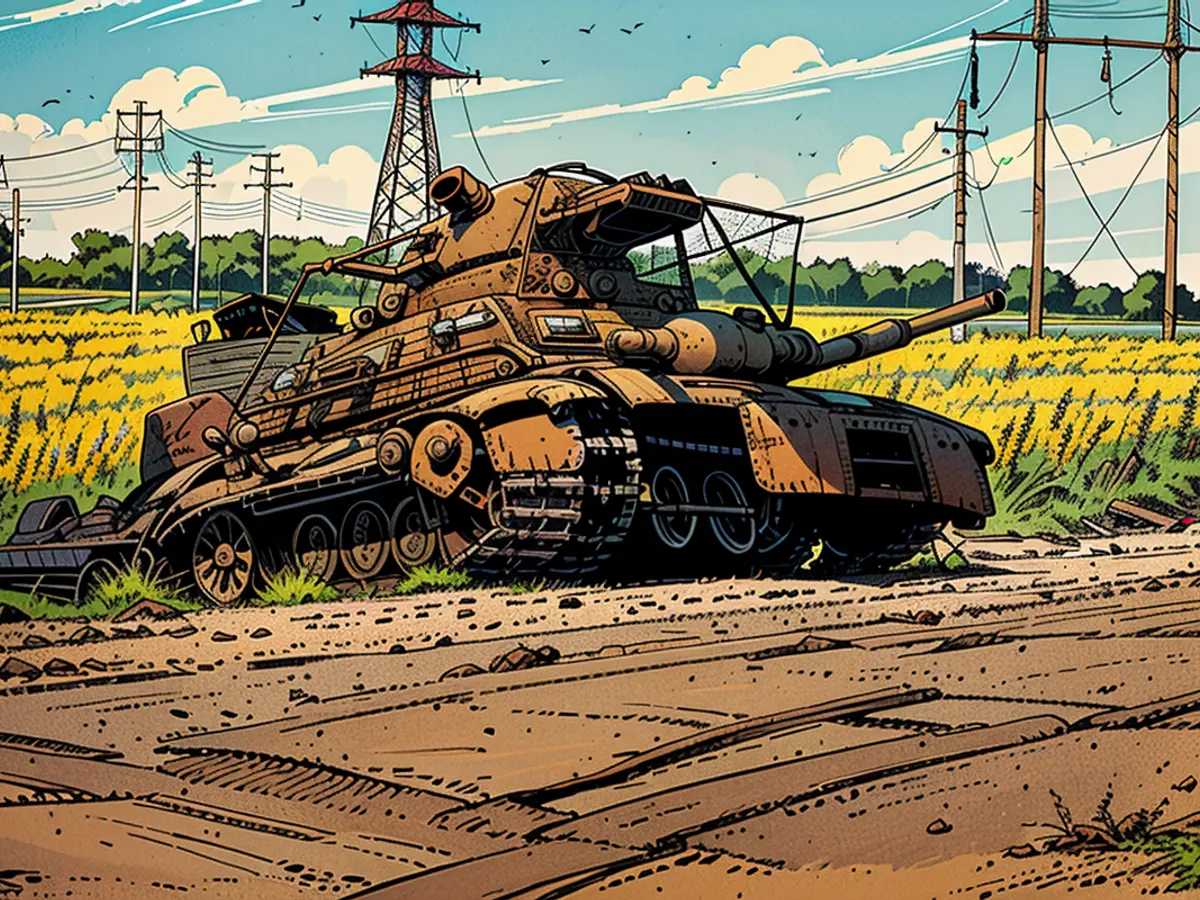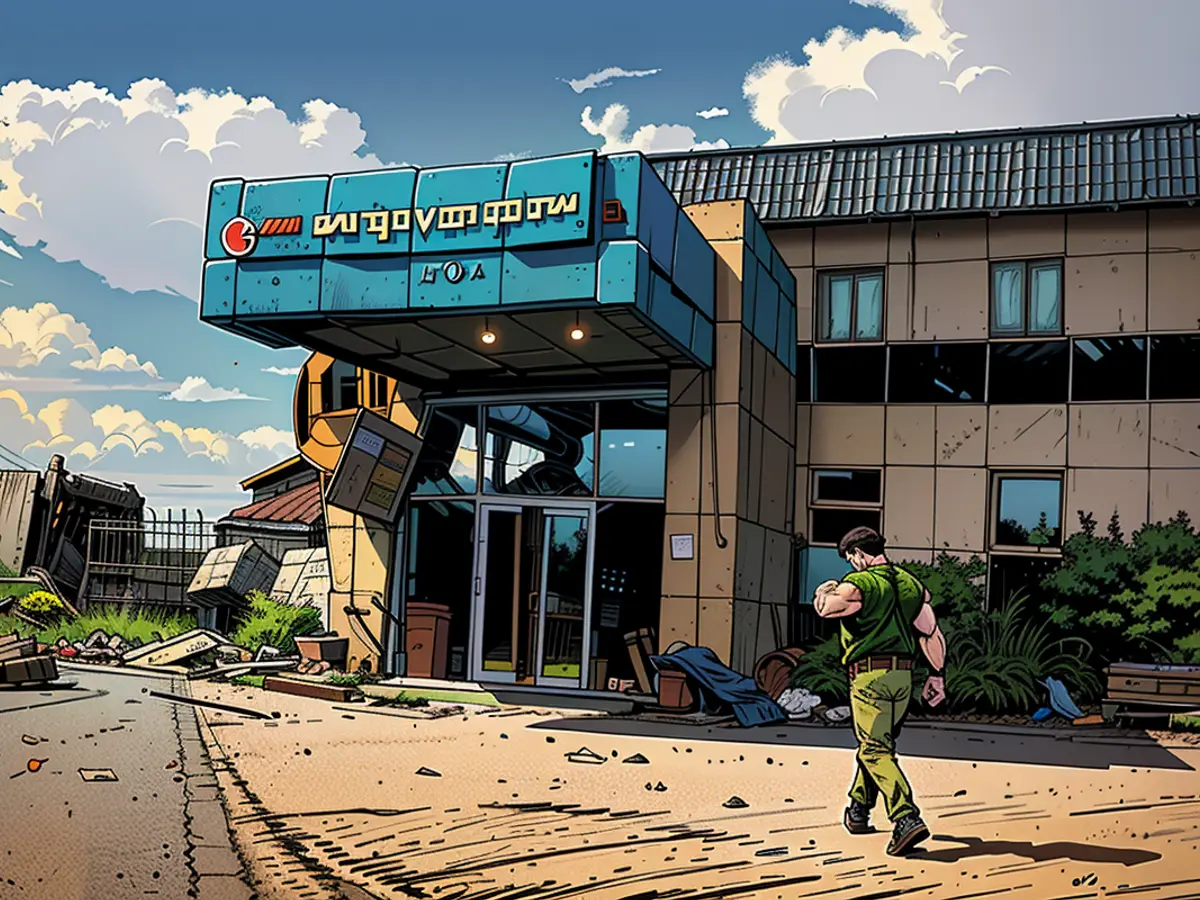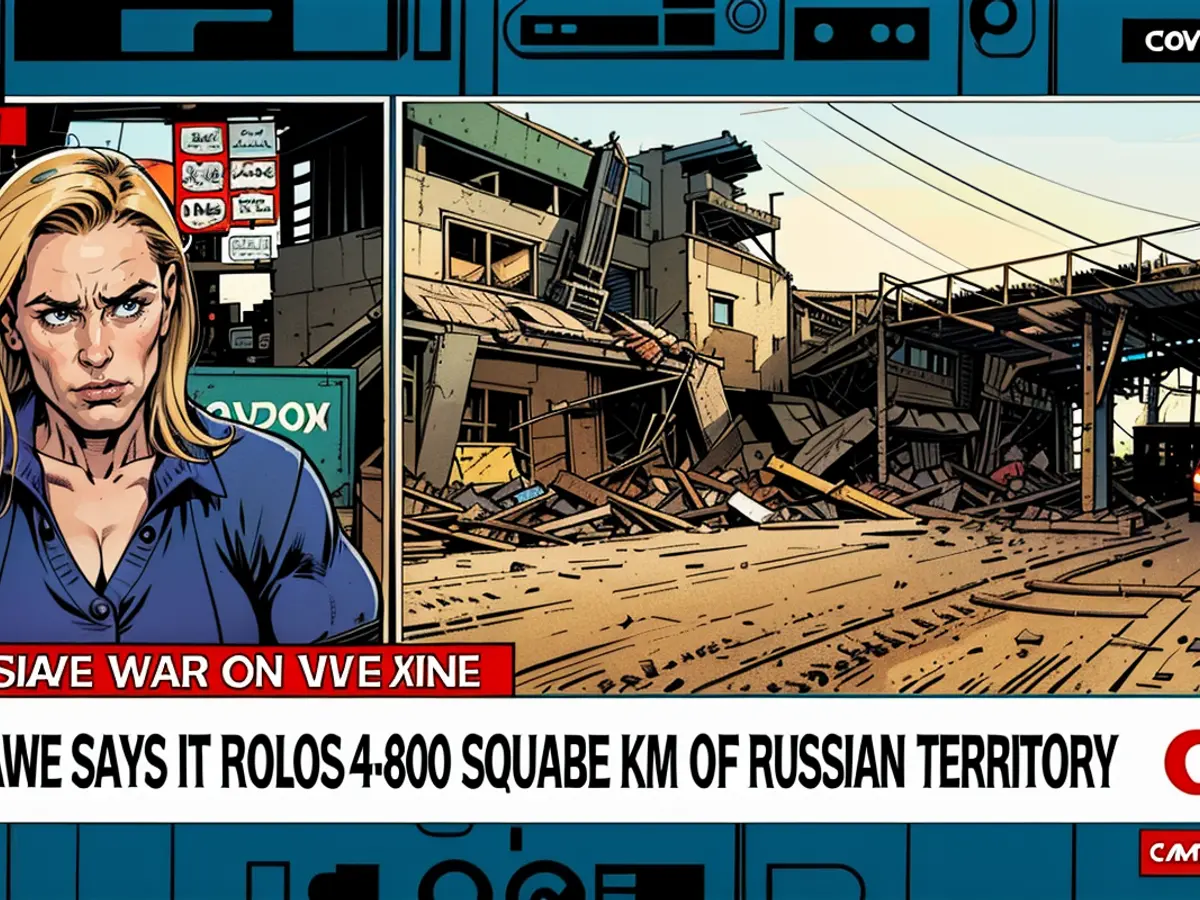Russia's encounter with Ukraine's advance highlights Putin's predicament in crisis management.
following a half-day of Ukrainian troops forcefully entering a Russian border crossing and subsequently venturing almost unchecked across the expansive rural landscapes of the Kursk region, Putin eventually addressed the situation publicly. He characterized the incursion as a substantial provocation, accused Ukraine of indiscriminately firing upon civilians, and then swiftly redirected attention to national affairs, including the commemoration of "Construction Worker's Day" in Russia.
A further five days elapsed, resulting in the loss of around 30 settlements, before Putin pledged a military retaliation. There was no visit to the region to meet with the displaced multitude of thousands, nor was martial law declared.
In March, following the tragic terror attack at the Crocus City concert hall in Moscow, which was one of Russia's deadliest in decades, Putin waited more than 24 hours before addressing the nation. Despite ISIS-K assuming responsibility for the attack, he continued to implicate Ukraine and the West in the incident. Putin did not visit the location of the attack nor offer support to the hospitalized survivors.
When Evgeny Prigozhin, then heading the Wagner mercenary group, orchestrated an unsuccessful mutiny the previous June, Putin's response was inconsistent. Initial reaction was one of condemnation, labeling it as betrayal, but two days later, he praised the Wagner troops for avoiding chaos and offered them military contracts. Prigozhin then visited Putin at the Kremlin, before meeting a mysterious plane crash in Russia two months later.
Parallels manifesting further afield are also evident, and Putin himself chose to highlight one of these during the current week. He returned to School No.1 in Beslan, over a week before the 20th anniversary of the terror attack on the school that resulted in the loss of over 300 lives, many of which were young children. In 2017, the European Court of Human Rights concluded that Russian authorities had neglected to act on prior knowledge of an imminent assault and the security operation was disorganized and lacked leadership.
“Putin is not skilled at resolving crises,” Boris Bondarev, former Russian diplomat who resigned in opposition to the Ukraine war and has since been living in exile, shared his thoughts with CNN. “It's risky, it's unpredictable. Putin prefers stability, he enjoys creating crises for others, ensuring he maintains control of the situation.”
Staggering assault leaves Kremlin in disarray
Several experts have suggested that Russia's military response in Kursk has mirrored the ineffective reactions of its president.
“The initial reaction following the shock of the situation would have been to consider who was left to defend,” retired Australian Major General Mick Ryan shared his thoughts with CNN. “Whether it be conscripts, understrength battalions from the Ukrainian theater, or strategic reserves.”
Testimonies from the battlefield have backed up the notion that various Russian troops were hastily deployed as Moscow grappled with the predicament of protecting its own territory while also continuing to advance on the eastern front. Ukrainian officials reported some troops were relocated from the Kharkiv region and the southern front. Chechen leader Ramzan Kadyrov claimed early on that his special forces unit, the Akhmat brigade, had been deployed. Naval infantry officers from the Black Sea fleet in Crimea are also taking part.
This diverse collection of forces complicates Russian efforts to coordinate their resistance, with one pro-Russian military blogger even acknowledging on August 14 that Ukraine was intentionally creating distractions and then retreating, taking advantage of the incompatibility among the multitude of forces who struggle with communication.
Russia's bureaucratic response to the incursion has been equally convoluted. Defense Minister Andrei Belousov established a coordinating council to manage security in the border regions and this week announced that responsibilities would be divided among no fewer than five different officials.

According to the Institute for the Study of War, “this arrangement will likely create additional confusion within the Russian MoD and friction among the Russian MoD, FSB, and Rosgvardia [Russia’s national guard], all of which are attempting to operate in Kursk Oblast,” which could potentially impair Russia's capacity to launch an effective counterattack.
Nevertheless, more than two weeks since the incident, there are now indications of a more coordinated effort. Dmytro Kholod, commander of Ukraine's "Nightingale" battalion, presently in Kursk, shared that he has observed a shift in Russian troops' behavior. “Now, the forces they have amassed in this region are attempting to assault us in some manner,” he informed CNN. “They no longer surrender by the hundreds. They are trying to fight back, but they still surrender when we attack them.”
Ryan, the Australian retired general, agrees that Russia is moving beyond the initial response phase and should begin to exhibit more organization in the weeks ahead. However, he believes the past two weeks have also exposed Putin's priorities, and currently, his people are not among them. “Putin's decision will be what is most perilous to him: Ukrainians in Kursk or failing in the Donbas,” Ryan posited. “I believe at the moment, he has decided that it's more risky to not succeed in the Donbas than to invest everything in Kursk.”
Experts believe that the Kursk infiltration hasn't significantly altered Putin's main approach of wearing down Ukraine and outlasting its allies through exhaustion. Despite this, Ukraine's unexpected tactic has strengthened those who had previously been doubtful about the West's decision to limit certain military assistance and its application within Russia.
This could possibly have been Ukraine's intention. On August 19, Ukrainian President Volodymyr Zelensky briefly lifted his veil of appreciation towards his Western allies in front of a gathering of Ukrainian diplomats.
"The naive, delusional idea of so-called red lines regarding Russia, which has guided the assessment of the conflict by some of our partners, has disintegrated somewhere near Sudzha lately," he reportedly stated, referencing a Russian town that Ukrainian troops had seized.
His message was that the West's concern about Russia interpreting the use of American or British long-range missiles on its soil as a justification for a nuclear response – in accordance with Russia's nuclear doctrine – is now less likely, considering Russia's lackluster military reaction to its first foreign occupation since World War II.
"The current NATO strategy for assisting Ukraine is a strategy for defeat. It's just a strategy for prolonging the war and allowing Russia to endure us all," said Ryan. "We need a fundamental reassessment."
Former Russian diplomat Bondarev argues that Putin's reaction further validates the need for the West to develop a more forceful countermeasure to Putin's aggression.
"When some Westerners suggest we shouldn't push Putin into a corner because he will transform into a cornered rat and will fight back with all his might," he said to CNN. "Now we see that when he's faced with a real crisis, he's not a cornered rat, he's simply an imposter."
"And that's why he shouldn't be feared so much."

The international community expressed concern over Russia's inability to effectively respond to the incursion in Kursk, viewing it as a reflection of Putin's leadership.
Despite the significant infiltration into Russian territory, Putin chose to focus on domestic affairs, further postponing visits to the affected regions or offering support to civilians.







